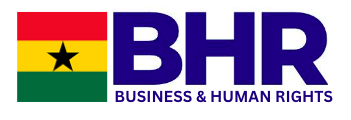The idea of human rights is as simple as it is powerful: that people have a right to be treated with dignity. Human rights are inherent in all human beings, whatever their nationality, place of residence, sex, national or ethnic origin, colour, religion, language, or any other status. Every individual is entitled to enjoy human rights without discrimination. These rights are all interrelated, interdependent and indivisible.
It has long been recognized that business can have a profound impact on human rights. This impact can be positive, for example by delivering innovation and services that can improve living standards for people across the globe. It can also be negative, for example where business activities destroy people’s livelihoods, exploit workers or displace communities. Companies can also be complicit in human rights abuses committed by others, including States—for example, if they collude with security forces in violently suppressing protests or..
The Guiding Principles on Business and Human Rights: Implementing the “Protect, Respect and Remedy” Framework are a set of 31 principles directed at States and companies that clarify their duties and responsibilities to protect and respect human rights in the context of business activities and to ensure access to an effective remedy for individuals and groups affected by such activities.
The Guiding Principles provide a blueprint for action, defining parameters within which States and companies should develop policies, rules and processes based on their respective roles and particular circumstances. They provide clarity to States on the implications of their existing duty to protect human rights against adverse impact caused by companies, including as it relates to ensuring that those affected by business activities have access to an effective remedy. They also provide practical guidance to companies about what steps they should take to ensure that they respect internationally recognized human
